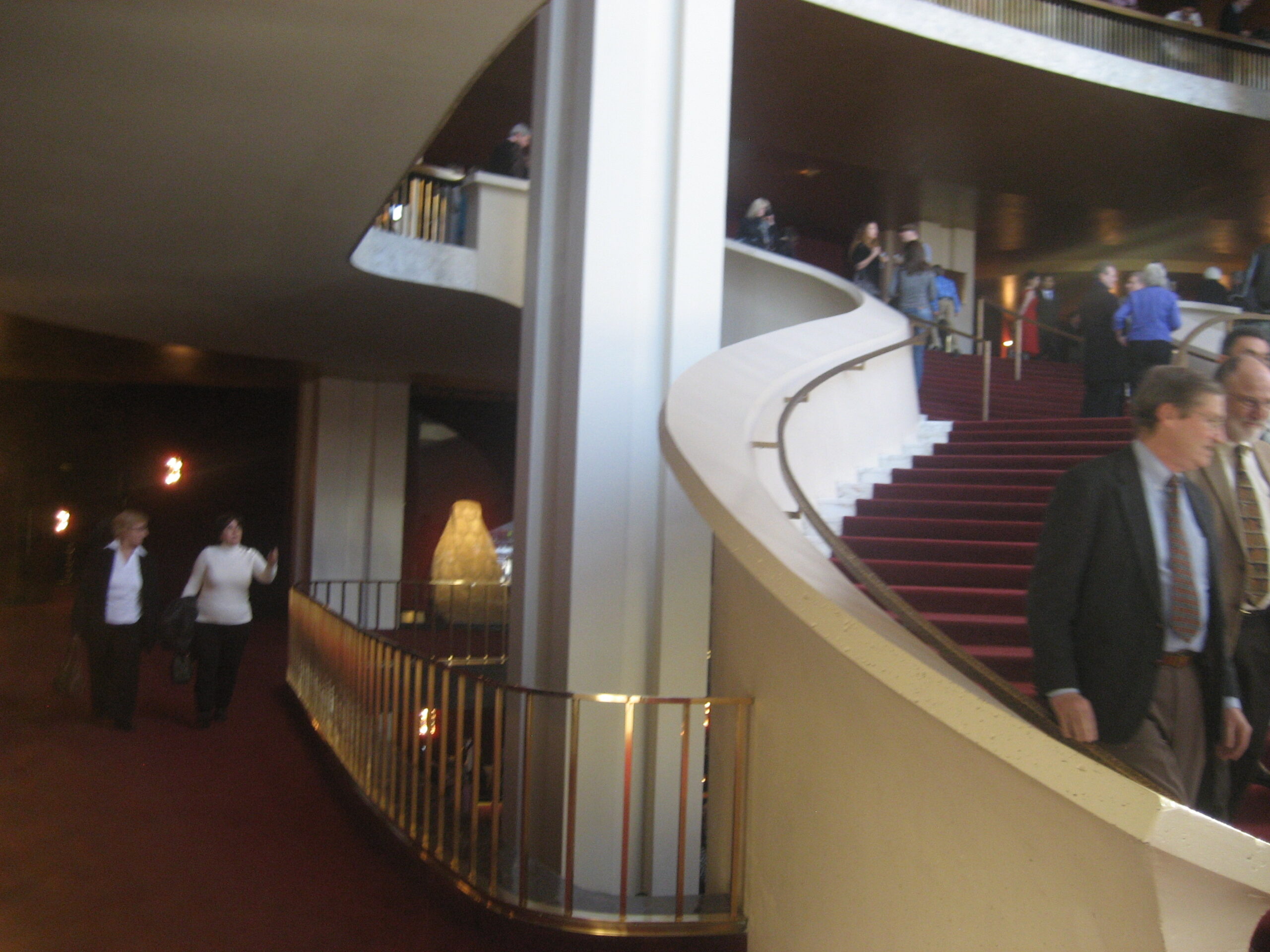 Today, opera is often dismissed as “stuffy” and “old-fashioned.” The Metropolitan Opera House’s The Enchanted Island, broadcast on January 21st to movie theaters worldwide, dispels this stereotype.
Today, opera is often dismissed as “stuffy” and “old-fashioned.” The Metropolitan Opera House’s The Enchanted Island, broadcast on January 21st to movie theaters worldwide, dispels this stereotype.
A fantastic marriage of traditional and modern, The Enchanted Island features Baroque music set to a new English language libretto. Its humorous, absorbing plot revolves around characters adapted from Shakespeare’s plays. Prospero, seeking a husband for his daughter, Miranda, requests that his slave Ariel shipwreck Prince Ferdinand on their island. Ariel ends up beaching four honeymooners—Hermia, Lysander, Helena and Demetrius—instead. Believing Demetrius to be Ferdinand, Ariel bewitches Miranda and Demetrius with a love enchantment. Meanwhile, as Ariel learns of his mistake and hastens to correct it, schemes are brewing on the dark side of the island. The sorceress Sycorax plots to exact revenge on Prospero for breaking her heart and for banishing her and her deformed son, Caliban. It’s up to Prospero to rectify everything so that he may find peace at last.
Phelim McDermott and Julian Crouch, the director and the set designer, breathed life into the production. Stunning high-tech projections are ingenuously combined with traditional painted set pieces, evoking both an old-fashioned and modern feel. This, added to the quirky, whimsical costumes and makeup, made the opera look like a Disney film. Especially magical were the shimmering mermaids in Neptune’s entrance, gently fanning their tails and seeming to float in midair.
Fresh and funky, the libretto by Jeremy Sams often triggered peals of laughter. Its wit, charm, and winning rhyme scheme, coupled with the elimination of a language barrier, rendered the opera immediately accessible and highly engaging. Several scenes were also profoundly touching, particularly the one in which Sycorax lamented for her heartbroken son.
Everyone performed outstandingly. William Christie conducted with vivacity and sprightliness. Joyce DiDonato, mezzo-soprano, was Sycorax, singing and acting with both fiery passion and deep sorrow. Her aria “Hearts that love can all be broken” was delivered with regret and quiet intensity, drawing tears. Soprano Danielle di Niese as Ariel dazzled with devilish singing, perfectly capturing the mischievous, restless spirit of the character. Her Act I aria, “I can conjure you a fire,” and her freedom aria were highlights of her performance. Bass-baritone Luca Pisaroni’s clumsy, naive Caliban cut straight to the heart, his voice burning with stormy intensity. David Daniels, countertenor, both moved and frightened as Prospero, though a bass or baritone would have been a better match for the brooding, world-weary sorcerer. The countertenor Anthony Ross Costanzo, on the other hand, perfectly fit his character, Ferdinand. His voice rang with the innocence and ardency of a young lover. Lisette Oropesa as Miranda also sang with glimmering sweetness. The lovers from A Midsummer Night’s Dream, soprano Layla Claire, tenor Paul Appleby, mezzo-soprano Elizabeth DeShong, and baritone Elliot Madore, all sang with appealing, assured voices. Tenor Placido Domingo, now 71, proved once again that he is still going strong. Playing the weary god Neptune, he sang with sizzling gravity and burnished power. His comic timing was impeccable, transforming his admittedly contrived aria “I’d forgotten that I was Lord” into one of the most memorable numbers. The most versatile of all living tenors, he continues to delight and enchant.
With its dazzling stage, lively libretto, delightful music and stunning singers, the Metropolitan Opera’s The Enchanted Island is the perfect day at the opera, whether you’re the seasoned opera-goer or the curious newbie. It is a production that beguiles and spellbinds, an experience that’s the furthest from “stuffy” or “old-fashioned” that you’ll ever get.
The United States rebroadcast of The Enchanted Island will be on February 8, 2012 at 6:30 P.M. local time. The Canada rebroadcast will be on March 3, 2012 at 1 pm local time and on March 26, 2012 at 6:30 pm local time.

